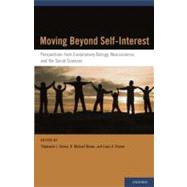
Note: Supplemental materials are not guaranteed with Rental or Used book purchases.
Purchase Benefits
What is included with this book?
| Contributors | p. xxi |
| Introduction | |
| Background and Historical Perspective | p. 3 |
| Foundations of Caregiving | |
| How Altruistic by Nature? | p. 25 |
| Adult Attachment and Caregiving: Individual Differences in Providing a Safe Haven and Secure Base to Others | p. 39 |
| Mechanisms, Mediators, and Adaptive Consequences of Caregiving | p. 53 |
| The Neuroscience of Caregiving Motivation | |
| The Human Caregiving System: A Neuroscience Model of Compassionate Motivation and Behavior | p. 75 |
| Neural Circuits Regulating Maternal Behavior: Implications for Understanding the Neural Basis of Social Cooperation and Competition | p. 89 |
| Neuroscience of Empathic Responding | p. 109 |
| Parental and Romantic Attachment Systems: Neural Circuits, Genes, and Experiential Contributions to Interpersonal Engagement | p. 133 |
| The Psychology of Caregiving Motivation | |
| Parental Investment in Caregiving Relationships | p. 153 |
| The Role of Empathic Emotions in Caregiving: Caring for Pediatric Cancer Patients | p. 166 |
| The Costs and Benefits of Informal Caregiving | p. 178 |
| Too Close for Comfort? Lessons from Excesses and Deficits of Compassion in Psychopathology | p. 199 |
| Egosystem and Ecosystem: Motivational Perspectives on Caregiving | p. 211 |
| Caregiving in Adult Close Relationships | p. 224 |
| Implications for Economics, Political Science, and Social Policy | |
| A New View of Utility: Maximizing "Optimal Investment" | p. 237 |
| Bringing Neuroscience into Political Science: The Caregiving System and Human Sociopolitical Evolution | p. 246 |
| Motivation and the Delivery of Social Services | p. 269 |
| Epilogue | p. 281 |
| Index | p. 283 |
| Table of Contents provided by Ingram. All Rights Reserved. |
The New copy of this book will include any supplemental materials advertised. Please check the title of the book to determine if it should include any access cards, study guides, lab manuals, CDs, etc.
The Used, Rental and eBook copies of this book are not guaranteed to include any supplemental materials. Typically, only the book itself is included. This is true even if the title states it includes any access cards, study guides, lab manuals, CDs, etc.